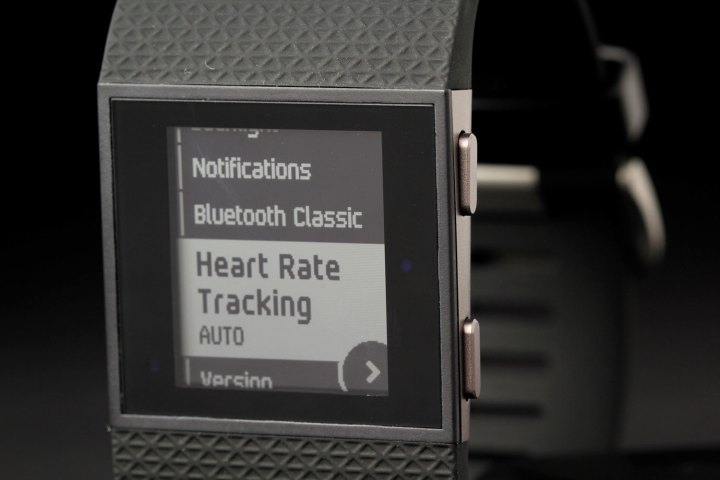
The study, which enlisted 22 male and 21 female healthy volunteers, sought to compare the heart rate readings of a time-synced electrocardiogram (ECG) to those from the Charge HR and Surge. Both wearables were placed on either participants’ wrists, while the ECG was done using a “previously validated and calibrated” heart rate measurement system, as well as a single channel ECG sensor and circuitry.
Participants were assigned to perform several indoor and outdoor tasks, including self-paced jogging, jump roping, treadmill running, stair climbing, and plyometrics, all of which were either followed or preceded by rests and all of which were performed for five minutes. In total, participants spent 65 minutes finishing their assigned tasks.
Unfortunately for Fitbit, results showed that the Charge HR recorded a heart rate that differed from the ECG’s data by 15.5 beats per minute (bpm). Meanwhile, the Surge recorded a heart rate that differed from the ECG’s results by an average of 22.8 bpm. The study also found that the Charge HR and Surge exhibited inconsistencies, with the devices showing a differential average of 10 bpm. However, the difference increased to 12.5 bpm when a participant’s heart rate reached 124 bpm, a heart rate associated with low intensity activities.
The study concluded that not only did the Charge HR and Surge record inaccurate heart rates when compared to an ECG, especially when participating in moderate to high-intensity exercise, but that their results even differed from each other. As such, the results have added fuel to the belief that Fitbit’s wearables don’t do a great job at measuring your heart rate, as well as the ongoing lawsuit that claims as much.
There are a few things to note about the study, the biggest of which being that it was commissioned by the lawsuit’s plaintiffs. As such, one can’t help but think this nugget of information slightly skews the results. In addition, the study doesn’t include as many participants as a study might want to have, which would help with the significance of the results.
Unsurprisingly, the company took issue with the study, calling it “biased, baseless, and nothing more than an attempt to extract a payout from Fitbit.” It also brought up Consumer Reports’ retesting of the Charge HR and Surge back in January, with the retest concluding that heart rates measured by both devices were accurate, regardless of the exercise’s intensity. Finally, a source familiar with Fitbit’s background told Gizmodo that the Zephyr BioHarness, the ECG that measured the participants’ heart rate, has “no validation that it’s any more accurate than our product.”
Even so, a 2014 article in the Berkeley Science Review and a February 2016 informal investigation by Indiana news station WTHR also arrived to similar inconsistent results with Fitbit’s trackers, with inconsistencies only increasing as the exercise grew in intensity.
In other words, we do not think the lawsuit against Fitbit will go away soon.


